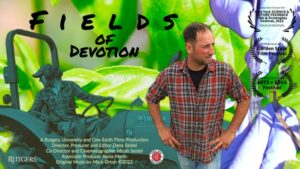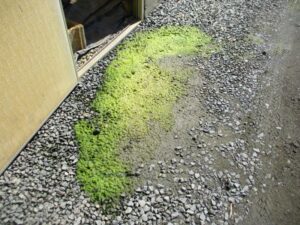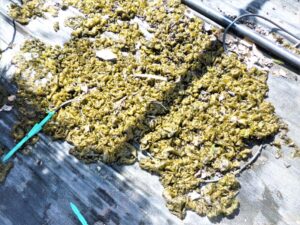Archives for January 2023
REGISTER BY FRIDAY: Pesticide Certification Testing NEXT Thursday 10am at NJACTS for New & Renewing New Jersey Applicators!
Critical Updates for the 2023 Vegetable Production Season
The Critical Updates for the 2022/2023 Mid-Atlantic Commercial Vegetable Production Recommendations are now available for FREE.
The 2022/2023 Mid-Atlantic Commercial Vegetable Production Recommendations guide is available FREE on-line or can be purchased in hardcopy form through your county agricultural office in New Jersey. The complete Vegetable Production Recommendations guide or specific sections can be downloaded depending on your production needs.
2x Nursery Sessions in Atlantic City Next Tuesday – 2023 New Jersey Agricultural Convention (ACTS) & Trade Show
I am happy to remind that Tim Waller (Cumberland) and Bill Errickson (Monmouth) will be holding two Nursery Sessions next Tuesday (Feb 7th) at the 2023 New Jersey Agricultural Convention & Trade Show (ACTS) hosted by the Vegetable Growers Association (VGA). The meeting is held at Harrah’s Resort Atlantic City.
This is a relatively new session for the nursery and green industries that Tim and Bill really pushed for, so PLEASE join us at this important agricultural event alongside many of the other commodities in NJ. Urge your friends and other growers to join as well so we can continue to bring in great speakers for this event.
Specifics:
- Click here to register and for more information
- February 7th (Tuesday)
- Harrah’s Atlantic City
- 2 Sessions with Pesticide CEU’s in 1A, PP2, 10
- Cost: $75 for 1-day pass (1 person), $120 for 3-day (2 people ($60 each)) + additional guest in your group $25 (cheaper option for multiple folks = grab a friend to come with).
Speaker highlight – View full schedule here get the full schedule here
Adam J. Kantrovich – Clemson (Extension Associate Professor of Agribusiness)
Dr. Kantrovich is an Associate Professor and Extension Economist with Clemson University and is located at the Sandhill Research and Education Center in Columbia, SC. Major responsibilities are programming activities in the areas of farm financials, ACA compliance for agribusiness, agribusiness succession and transition planning and agricultural and timber taxation management. Dr. Kantrovich conducts programs around the state and nationally to various agricultural groups and organizations. Click here for Dr. Kantrovich bio
- Speaking on: “What’s the Political, Policy, and Economic Landscape” (1-h afternoon session)
- Followed by a NRCS and FSA panel to speak about federal monies available to implement some of these ideas
Other speakers:
- Bill Errickson (RCE Monmouth Agent) – Native Trees for Low Input Landscapes
- Raul Cabrera (Nursery Extension Specialist) – Irrigation Management of Nursery Crops
- Steve Rettke (Nursery IPM) – Backyard Beneficials: Inviting Insects into the Landscape
- Lauren Errickson (Director of Rutgers Gardens) – Women in Horticulture Panel
- Aly Dyson and Stephanie Bouchelle (FSA), Fran Deficcio (NRCS) – Available NRCS and FSA Programs for Nurseries
- Tim Waller (RCE Cumberland Agent) – Management of Oomycete Root Diseases (with treatment regime handouts!)
Upcoming Events:
- Rutgers Speakers (and Educational Committee Planning) – TotalPro Expo (NJNLA)(Jan. 31st – Feb 1st)
- Rutgers Speakers (and Educational Committee Planning) – Landscape New Jersey (NJLCA) (March 1st)
- Tim Waller will be speaking about Phytophthora at Chesapeake Green 2023 (February 15 – 16th)
- Many more to come including Nursery IPM Training Sessions
Fields of Devotion film screening at 2023 New Jersey Agricultural Convention & Trade Show at Harrah’s Resort in Atlantic City, on Tuesday February 7th.

Fields of Devotion (30 minutes) features New Jersey farmers and Rutgers scientists partnering to develop climate resilient and disease resistant food crops to empower growers.
Discussion with the featured farmers and scientists immediately following screening.
Watch the Fields of Devotion trailer by clicking here.
Event description: Small family farms in New Jersey are racing against climate change. Unpredictable weather and new diseases are threatening the very crops they depend upon. Fields of Devotion follows the decade long partnership between Rutgers plant biologists, the New Jersey Agricultural Experiment Station (NJAES), and New Jersey herb farmers who together developed lines of sweet basil resistant to downy mildew, a devastating disease destroying Ocimum species around the world.
Building upon more than a century of Rutgers’ support for New Jersey growers, Fields of Devotion is told from the perspective of the farmers and graduate science students who together help realize Rutgers land grant mission of community engagement and academic excellence.
For those attending the New Jersey Vegetable Growers Association (NJ-VGA) or the New Jersey Department of Agriculture’s (NJDA) 2023 Annual Meeting we cordially invite you to please join us this February 7th at 3:30 pm in Wildwood Rooms 8 and 9.
Contact: Andy Wyenandt, Extension Specialist in Vegetable Pathology, Rutgers University
email: wyenandt@njaes.rutgers.edu
Nostoc in Nurseries: Herbicides to Control the Slippery Slime Threat
Nostoc is a cyanobacterium and is one of the oldest organisms on earth (over 3.5 billion years). It is a primitive growth, like algae, moss, and liverwort. Many years ago, it was incorrectly identified as blue-green algae. Nostoc has no roots, no vascular tissues & is not a plant but it is photosynthetic. It can be found growing within gravel, stones, limestone chips, granite, saturated soils & on-ground cloth within container nurseries. It can tolerate long periods of desiccation but requires plentiful amounts of water for establishment. This cyanobacterium growth can become common & persistent at certain nursery/greenhouse sites where long-term overhead irrigation is done.

Nostoc growing in front of container bay opening. The opening allowed the overhead irrigation to saturate the soil/gravel at entrance. (Photo Credit: Steven K. Rettke, Rutgers Coop. Ext.)

Nostoc growing on ground cloth within a nursery container bay. Creates a serious slipping hazard for nursery personnel. (Photo Credit: Steven K. Rettke, Rutgers Coop. Ext.)
Nostoc is not toxic & does not directly compete with nursery/greenhouse crops or landscape plants, but it can harbor fungus gnats & snails. Nostoc first became a growing concern in nurseries approximately 30 years ago. Slipping hazards are the primary threat this organism poses to nursery & greenhouse personnel. It forms gelatinous masses composed of filaments linked together by protective jelly-like coverings. This creates a surface as slick as wet ice. Nostoc can occasionally be found growing within turf or landscape settings but is not common.
This blog will show with photographic images how Nostoc can be identified & will also review available control options.
Food Safety Certification for Specialty Crops Program Deadline!
Did your specialty crop operation recently incur on-farm food safety program expenses related to obtaining or renewing a food safety certification in calendar years 2022 or 2023? You may be eligible for financial assistance through USDA’s Food Safety Certification for Specialty Crops Program (FSCSC).
USDA’s Farm Service Agency will accept FSCSC applications for calendar year 2022 from June 27, 2022, through January 31, 2023. The application period for calendar year 2023 runs from February 1, 2023, through January 31, 2024.
How the Food Safety Certification for Specialty Crops Program Works
The FSCSC program provides financial assistance for specialty crop operations that incur eligible on-farm food safety program expenses related to obtaining or renewing a food safety certification in calendar years 2022 or 2023. This program helps offset costs to comply with regulatory requirements and market-driven food safety certification requirements.
For each year, FSCSC will cover a percentage of the specialty crop operation’s cost of obtaining or renewing their certification, as well as a percentage of their related expenses.
Program Eligibility
Eligibility requirements for FSCSC applicants are outlined below. We recommend you review these requirements before initiating your FSCSC application.
To be eligible for FSCSC, an applicant must:
- Have obtained or renewed a:
- 2022 food safety certification that was issued between June 21, 2022 and December 31, 2022; or
- 2023 food safety certification issued during the 2023 calendar year, and
- Have paid eligible expenses. Expenses that have been incurred by the applicant, but have not yet been paid, will not be eligible.
- Be a specialty crop operation; and meet the definition of a small business or very small business.
- A small business means an applicant that had an average annual monetary value of specialty crops the applicant sold during the 3-year period preceding the program year of more than $250,000 but not more than $500,000.
- A very small business means an applicant that had an average annual monetary value of specialty crops the applicant sold during the 3-year period preceding the program year of no more than $250,000.
- Be located in the 50 United States, the District of Columbia, the Commonwealth of Puerto Rico, Guam, American Samoa, the U.S. Virgin Islands, and the Commonwealth of the Northern Mariana Islands.
Ineligible expenses include infrastructure improvements, equipment, supplies, salaries and benefits, and fees or penalties for late payment.
Eligible Expenses
Specialty crop operations that obtain food safety certification through a group model under a food safety management system are eligible to apply for assistance for their share of eligible expenses paid by the group, in addition to any eligible expenses they incur individually. If requested by the Fam Service Agency, specialty crop operations certified as part of a group under a food safety management system must provide documentation of the applicant’s portion of the group’s expenses from the entity responsible for maintaining the group’s certification.
FSCSC payments are calculated separately for each category of eligible costs based on the percentages and maximum payment amounts as described in the sections above. Applicants must report any previous cost share assistance received for the expenses included on their application.
The Farm Service Agency will issue payments for program year 2022 following approval of the application. For program year 2023, payments will be issued after the end of the application period. USDA may prorate 2023 final payments if calculated payments exceed the amount of available funding.
Apply for the Food Safety Certification for Specialty Crop Program
The FSCSC application period for calendar year 2022 will be June 27, 2022, through January 31, 2023. The application period for calendar year 2023 runs from February 1, 2023, through January 31, 2024.
Eligible specialty crop operations can apply for FSCSC by working directly with the Farm Service Agency office at their local USDA Service Center. Applications will be accepted via mail, fax, hand delivery, or electronic means.
Alternatively, producers with an eAuthentication account may apply for FSCSC via our FSCSC Application Portal. Applications will be completed, electronically signed, and submitted directly to your local USDA Service Center through this online system. Please reference our FSCSC Application Portal User Guide for additional information, including step-by-step application instructions. Producers interested in creating an eAuthentication account should visit farmers.gov/sign-in to learn more.
The following forms are needed to apply for FSCSC:
- FSA-888, Food Safety Certification for Specialty Crops (FSCSC) Program Application: This form includes a certification of the applicant’s status as a specialty crop operation and a small or very small business, and their eligible expenses. Complete the form according to the FSA-888 instructions.
- AD-2047, Customer Data Worksheet: This form will be required if not already on file with the Farm Service Agency and documents personal information that positively identifies the customer. Existing customers can also use this form to update their customer profile. Complete the form according to the AD-2047 instructions.
- SF-3881, ACH Vendor/Miscellaneous Payment Enrollment Form: This form will be required if not already on file with the Farm Service Agency and will be used to collect your banking information to allow USDA to make payments to you via direct deposit.
- CCC-860, Socially Disadvantaged, Limited Resource, Beginning and Veteran Farmer or Rancher Certification (if applicable): This form allows customers to certify that they, or the entity or joint operation, are a member (of if applicable members) of a socially disadvantaged group; qualify as a limited resource producer(s); are beginning farmer(s) or rancher(s); or are veterans. Complete the form according to the CCC-860 instructions.
- Supporting Documentation, if requested: Please note that applicants may be required to provide additional documentation to the Farm Service Agency, if necessary, to substantiate the expenses reported on the application. Examples of supporting documentation include paid invoices, purchase receipts, test results, food safety plans, and certifications, training documentation, and other records determined acceptable by FSA.
You are encouraged to contact the Farm Service Agency office at your local USDA Service Center with any questions about FSCSC, program eligibility, or the application process. You may also call 877-508-8364 to speak directly with a USDA employee ready to provide one-on-one assistance.
